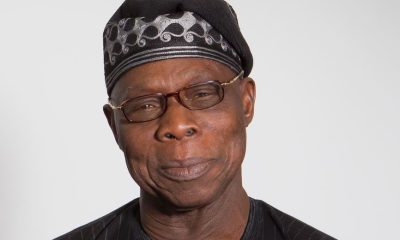Education
The Private University as Enterprise: Limits of Academic Capitalism

By Jibrin Ibrahim
Last week, I attended a Convening on Higher Education in Africa, organised by Professor Toyin Falola of the University of Texas at Austin. The conference held at Babcock University and focused on the theme of the impact of private universities on public universities in Africa.
Participants were drawn from university faculty, Academic Staff Union of Universities (ASUU), education regulators, founders, donors, students, and independent researchers from Ghana, Kenya, Uganda, South Africa, and Nigeria. It was an exciting debate on the complex relationship between the public and private sectors in higher education.The original argument for the establishment of private universities was to create more access for students but the reality today is that the private sector has not substantially increased access.
In addition, private universities have not really recruited and trained their own faculty, they poaches from the public sector for staff and are dependent on moonlighting. The terrible story that has emerged is that many public university lecturers that are rarely seen by their students go to teach students in the private sector with assiduity and devotion for the extra money. The raison d’être of private universities, at least in Nigeria, is that public universities are perpetually on strike and parents need universities where their children can study, fully covering the syllabus and not spending more than the required number of years before graduation. This is being achieved and already the age of graduands of private universities is significantly lower than that of the public sector.Nigeria currently has a total of 198 universities, half of which, 99, are private. The private universities however host only about 10 per cent of the total students in the country. The breakdown of the universities is as follows:
45 Federal Universities with 1,310,825 students = 62.4 per cent.
54 State Universities with 578,936 students = 27.5 per cent.
55 Private (Christian) Universities with 98,358 students = 4.68 per cent.
5 Private (Muslim) Universities with 29,984 students = 1.4 per cent.
39 Private (Secular) Universities with 81,908 students = 3.9 per cent.
A couple of years ago, we carried out research with the Institute of Education of the University of London on universities as a public good in Nigeria, Ghana, Kenya, South Africa and Uganda. Our findings showed a deep commitment by the governments and people of these countries to higher education as a public good that the state should bear responsibility for. The system worked as an elite model up till the 1980s, when the demand for access grew and in the process of rapid and significant expansion, massification developed. The governing elites in these countries responded with their feet, taking their children out of public sector universities on the grounds that quality had fallen, and sending them abroad. Those who could not afford foreign universities demanded for the establishment of private universities in their countries and the outcome is a two-tier system, essentially separating the children of the elite from those of the general people.
At the Babcock Conference, Dr Hannah Muzee of the University of Cape Town described this era we are in as one of academic capitalism, because many of the proprietors of private universities conceive of their organisations as enterprises that provide a service but should also produce profit. The consensus at the conference is that in Nigeria, not all private universities see their mission as profit making. Nonetheless, they are seen as enterprises that should, at least, break even. So far, that is not happening. Most private universities are making heavy losses. The reason is simple. I discussed with a number of proprietors and Vice Chancellors of private universities and their story is that the student base they have is too small to support the huge land acquisition, infrastructure development, security, construction and bank loan costs that they have incurred. In the coming years, many will collapse as bankrupt businesses, because although they charge high fees, the fees are too low to support their costs.
The real problematic they face is not with public universities in Nigeria. The Nigerian university system is complex and class based and operates in an international environment in which many within the elite send their children abroad for their education. According to the United Kingdom’s Higher Education Statistics Agency (HESA), Nigeria was the third non-European Union country sending the highest number of students to the UK. In 2009/10, it had 16,680 students in its higher institutions and in 2010/11, there were 17,585 Nigerian students in those institutions, ranking only behind India and China. The United Kingdom has been actively soliciting for Nigerian fee-paying students for decades, with each student paying, on average, £12,000 each just for tuition. It was the former governor of the Central Bank of Nigeria, Muhammadu Sanusi II, who first drew attention to the cost of education of elite children abroad. He said there were about 71,000 Nigerian students in Ghanaian tertiary institutions and they spent about US$1 billion on tuition and upkeep at that time: “The tuition paid by Nigerian students studying in Ghana with a better organised education system is more than the annual budget of all federal universities in the country.”
A fraction of the amount spent by the elite on their children abroad would be enough to adequately fund higher education in Nigeria. This is what led us to the current paradox in which progressive Nigerians insist that the government must fully fund public universities, but as the elite know that the university system is broken, they vote with their feet and send their children abroad for university education. According to the International Educational Exchange data released by the Institute of International Education (IIE), there were 11,710 Nigerian students pursuing their educational goals in the United States in 2017. When you add the numbers of Nigerian students in Malaysia, Canada, South Africa, Egypt, Saudi Arabia, the United Arab Emirates, Hungary, India, Turkey, Ukraine, Russia, Cyprus and Germany, it is easy to see why private universities in Nigeria have been squeezed out of resources. There is a political economy crisis generated by the fact that the Nigerian elite place massive amounts of money in foreign universities, undermining both public and private universities in Nigeria.
Essentially, our elite has made nonsense of the Constitution of the Federal Republic of Nigeria which provides that:
Government shall direct its policy towards ensuring that there are equal and adequate educational opportunities at all levels
Government shall promote science and technology
Government shall strive to eradicate illiteracy; and to this end, Government shall as and when practicable provide:
Free, Compulsory and Universal Primary Education;
Free University Education; and
Free Adult Literacy Programme.
As a nation, we have decided to divert the resources for these to foreign institutions.
The Babcock Convening had drawn out battles between ASUU activists, who see the private universities as the problem, and the private university warriors who see ASUU as the ogre that has killed the public universities with their strikes, forcing the need to go private. I think it would be useful to orient the discussion towards establishing the costs that Nigerians pay to fund and support foreign university budgets. Consciousness of the vastness of the expenditure might push us towards reflecting on how some of the said resources can be used to revive the Nigerian university system. Academic capitalism is not local, it is global. The university as enterprise is not in Nigeria, it is abroad.
A professor of Political Science and development consultant/expert, Jibrin Ibrahim is a Senior Fellow of the Centre for Democracy and Development, and Chair of the Editorial Board of PREMIUM TIMES.
Education
How female Medicine Degree Holder Abandoned Certificate for Carpentry- Bugaje

The Executive Secretary, National Board for Technical Education (NBTE), Prof. Idris Bugaje has expressed the need to promote inclusivity, especially for women and persons with disabilities in technical education.
Bugaje stated this in Abuja while assessing the impact of President Bola Tinubu’s administration after two years in office.
He appealed for greater gender inclusivity in vocational and technical education, stressing that deliberate policies such as scholarships and incentives could help bridge the gender gap.
In support of his position, Bugaje shared an inspiring story of a female medical doctor who abandoned her medical career to pursue carpentry.
“There is a story I want to share with you, about a girl who was interested in becoming a carpenter.
“The father was a carpenter and they were four children in the family, three boys and herself.
“Whenever she joined the boys to the workshop, the father would send her away, saying, `you are a girl, go back to the house, you are not supposed to be a carpenter’’.
“Without giving considerations to the passion of the young girl, the father sent her to a medical school.
“She graduated with the MBBS, went and did the one-year internship after graduation, and chose a role as a medical doctor.
“After that, she came back to the father, returned the MBBS certificate to him, and thanked him.
“Afterward, she told the father that her passion is in carpentry, not to practice as medical doctor,” Bugaje narrated
He added that after spending seven years on medical training, the father had no option but to send her to Turkey to learn how to make furniture.
Addressing cultural and societal barriers often faced by young women in technical fields, Bugaje appealed to parents to support their daughters’ interests in trades like plumbing, electrical installation, and carpentry.
He also called on policymakers to prioritise passion and skill development among youth, especially girls, noting that such encouragement could lead to greater innovation and self-reliance.
“If they want to become carpenters, ICT experts, or POP artists, allow them.
“In skills’ training, passion is very important. That’s what motivates children and helps them innovate.
“We need to harness these innovations if the country is to move forward and rise beyond being a third-world nation,” he said.
He emphasized the need to have deliberate policies to encourage women to come into TVET through scholarships and other incentives. (NAN)
Education
WAEC Apologies for Conducting English Exam Late, Cites Leakage Prevention

The West African Examinations Council (WAEC) has apologized for delay in conducting English Language Paper 2 in the ongoing 2025 West African Senior School Certificate Examination (WASSCE).
The took place on Wednesday evening.
In a statement by Moyosola Adesina, Acting Head of Public Affairs Department of
WAEC, the council said that it encountered challenges.
”While maintaining the integrity and security of our examination, we faced considerable challenges primarily due to our major aim of preventing leakage of any paper.
“We recognise the importance of timely conduct of examinations and the impact of this decision on candidates, their schools and parents, and we sincerely apologise for any inconveniences caused,” WAEC stated.
It said that it successfully achieved its objective but it inadvertently impacted the timeliness and seamless conduct of the examination.
“In spite of our best efforts, we encountered logistical hurdles, security concerns and socio-cultural factors that negatively influenced our operations,” WAEC said.
The council re-affirmed its commitment to upholding the highest standard in examination conduct, and pledged to continue to promote academic excellence. (NAN)
Education
FG vows full WAEC CBT shift by 2026 – Minister

The Minister of Education, Dr Tunji Alausa, has reaffirmed the Federal Government’s commitment to fully transitioning to Computer-Based Test (CBT) examinations for the West African Examinations Council (WAEC) and other exam bodies by 2026.
Dr Alausa made this known while monitoring the conduct of WAEC’s CBT examinations in Abuja on Wednesday.
He expressed optimism about Nigeria’s capacity to modernise its examination system and reduce widespread malpractice through digital innovation.
Commending WAEC’s initiative, the minister described the shift from traditional pen-and-paper exams to CBT as a historic and crucial step toward fairness and educational integrity.
“We are working very hard to eliminate fraud in our exam system, and WAEC is taking the lead,” he said.
Highlighting the advantages of CBT, Alausa noted that the system simplified the exam process while significantly curbing cheating.
“We now have clear evidence that when exams are done using technology, the level of fraud is minimised to almost zero,” he stated.
He further lauded WAEC’s internal safeguards, explaining that the CBT system was operated via a secured Local Area Network (LAN), making it “literally impossible” to hack.
According to the minister, by Nov. 2025, all WAEC multiple-choice exams will be conducted using CBT.
He added that essay questions and NECO examinations would follow suit by 2026.
On infrastructure and logistics, particularly in remote areas, Alausa acknowledged the challenges but assured that scalable solutions are in progress.
“Are we going to be ready to provide every single needed infrastructure by November? Absolutely not.
“But as we move into the future, we will be ready. We have to challenge ourselves as government,” he said.
He also addressed concerns over the logistics of conducting multiple exams.
“In WAEC, the average student takes about eight to nine papers.
“They do it over several days. Those are the logistics we, as administrators, have to work through, and we already are,” he explained.
The ongoing WAEC exams, which began on April 24, are scheduled to conclude on June 20, 2025.
A total of 1,973,253 candidates from 23,554 schools are participating. Of this number, 979,228 candidates are male, accounting for 49.63 per cent, while 994,025 candidates are female, making up 50.37 per cent.(NAN)
















